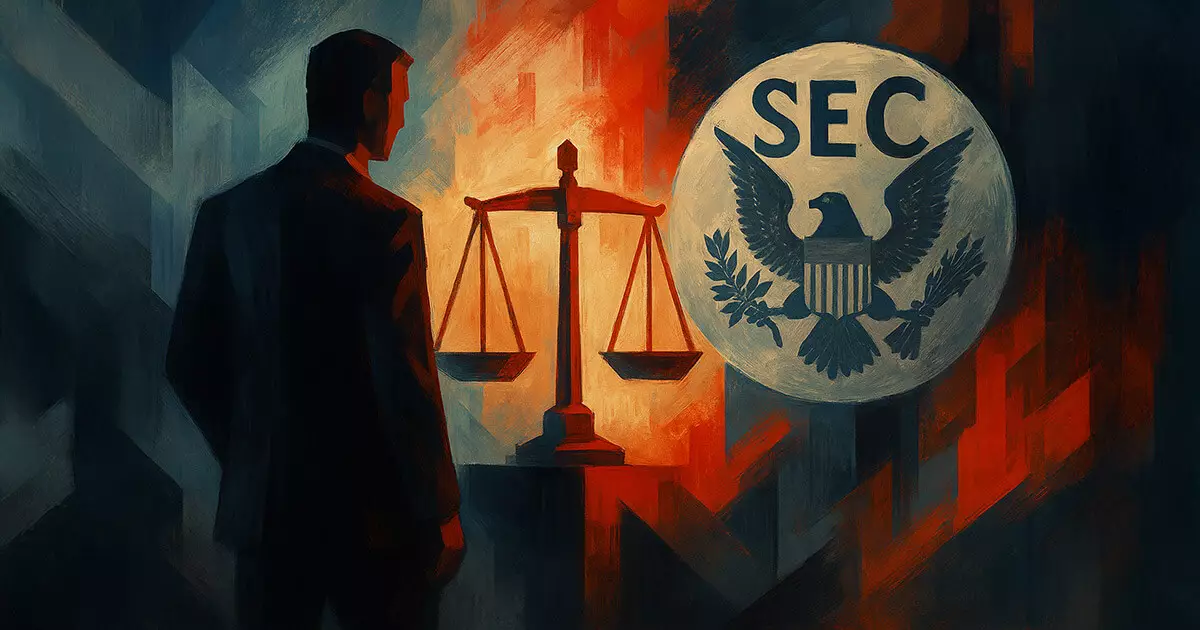In recent years, the proliferation of Ponzi schemes has cast a long shadow over the financial landscape, exposing the fragility of investor trust and the underlying weaknesses within our regulatory framework. The recent case involving First Liberty Building & Loan, LLC, underscores a troubling reality: high-yield promises continue to lure even the most discerning investors into catastrophic financial traps. As these schemes become increasingly sophisticated and ingrained within local political and social fabrics, it becomes clear that our system often prioritizes revenue and superficial oversight over genuine investor protection. The illusion of quick, substantial gains obscures the inherent risks, and once the façade crumbles, countless individuals are left to bear the devastating consequences.
Political Connections and Crossroads of Trust
This case highlights an insidious intertwining of politics and finance—a pattern that prioritizes influence and access over integrity. Edwin Frost IV’s prominence in Georgia’s Republican circles and his political donations exemplify how political power can shield or enable dishonest actors. When high-profile individuals with deep connections are implicated in financial misconduct, public skepticism burgeons, and trust in both political institutions and financial regulators diminishes further. This scenario exemplifies how the convergence of wealth, influence, and unchecked ambition can derail safeguards meant to protect everyday investors, especially those within targeted communities who may lack the resources or knowledge to navigate complex financial products critically.
The System’s Self-Inflicted Wounds
The SEC’s ongoing efforts reflect an urgent need for a more robust and proactive approach to prevent future collapses of this nature. Yet, it raises fundamental questions: Are our regulatory agencies equipped enough to detect and dismantle such elaborate schemes before they inflict widespread damage? Historically, regulatory frameworks have lagged behind the clever manipulations of schemers who exploit investor naivety and legal loopholes. The First Liberty case reveals systemic gaps—particularly in monitoring opaque investment promises, industry oversight, and the influence wielded by politically connected figures—that render ordinary investors vulnerable. This failure isn’t just a consequence of oversight but also a result of a societal complacency that often turns a blind eye to unsustainable promises, especially when they offer alluring returns.
The Perilous Promise of High-Yield Investments
High-yield promises, overzealously marketed as safe and lucrative, are a magnet for unsuspecting investors. As Justin Jeffries from the SEC pointed out, “The promise of a high rate of return is a red flag.” Yet, psychological biases and the allure of quick wealth tend to overshadow rational skepticism. The proliferation of these schemes disproportionately impacts communities with tight-knit networks that can be exploited through targeted propaganda, whether via media or personal connections. The danger lies not only in the potential financial loss but also in the erosion of confidence in legitimate financial institutions and markets. When schemes like these succeed in their deception, they propel a cycle of disillusionment, mistrust, and perhaps, reluctant acceptance of continued regulatory failure.
The Need for Vigilance and Reform
While criminal charges and asset freezes are necessary steps, they are but reactive measures in a larger battle for financial integrity. The true solution lies in reform—enhancing transparency, tightening regulations, and cultivating sophisticated investor education that emphasizes skepticism and due diligence. Public awareness campaigns must evolve alongside financial innovation, especially regarding schemes that prey on emotional and social ties. Additionally, there must be a clear accountability structure for political figures and influencers who leverage their prominence to give schemes unwarranted credibility. Otherwise, the cycle will perpetuate itself—new recruits, drawn in by promises of prosperity, will continue to fall prey, leaving behind a trail of broken trust and shattered lives.
In the end, the recent fallout from the First Liberty scandal serves as a stark reminder: the allure of swift fortunes often masks deeper, systemic flaws. Without decisive action—both regulatory and societal—the cycle of deception will persist, and future generations will continue to pay the price for complacency. It’s time we scrutinize not just the schemers but also the framework that allows such schemes to thrive.

